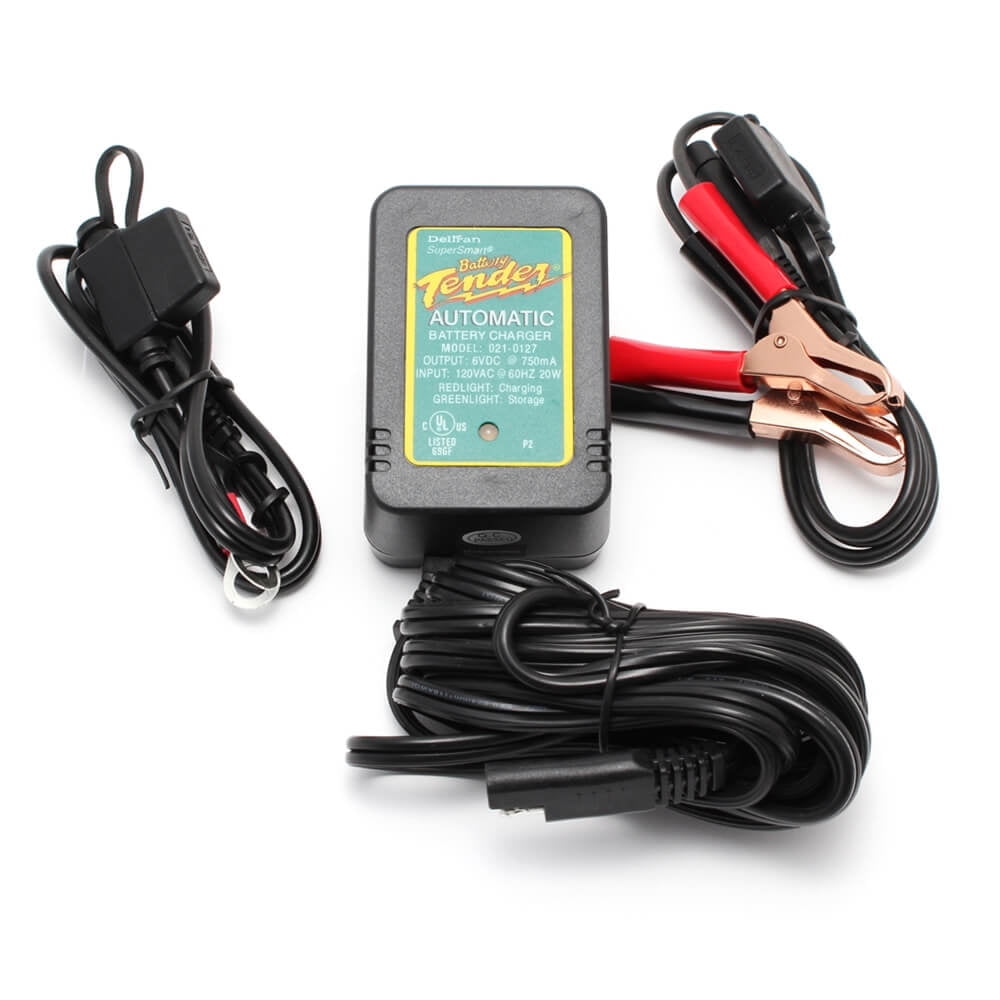

If you look at your 3rd power rating it tells you the CPAP Machine can run directly off a battery with a rating of 12VDC, which is a 12 volt battery, and it will pull 6.67 Amps an hour. Are you going to use the inverter? Using an inverter is not my first choice as they draw more out of the battery, than going straight off the battery. We get this question quite a bit, so don’t worry about being confused! The first thing you need to figure out is how your going to run a CPAP machine off a battery.
#BATTERY TENDER MANUAL#
Would a 2/6amp, 6/12v manual charger with self-resetting circuit breaker and an automatic trickle charger after the battery is full work for this?įor reference this is what the CPAP machine says under the electrical version of the manual, and this is where I get a little confused (though I have had others tell me they use this battery and inverter with their cpap just fine – but they use a 3 panel 45 watt solar charger which is unfortunately out of my price range.):ĪC power consumption (with 60w power supply) 100-240 VAC, 50/60 Hz, 2.1 AĪc Power consumption (with 80w power supply) 100-240 VAC, 50/60 Hz, 2.0 AĪny help or explanations are appreciated, as I am brand new to trying to figure this stuff out. A lot of the reviews mention float chargers, which works for storage – but I need something that will ensure the machine is able to run at night, and can be charged via wall socket during the day. I know you have higher quality chargers listed, which is great, but I don’t know what type of charger I can use at all. I’m having a hard time knowing what type of charger to purchase, as I’m on a tight budget. We have also selected a 400w continuous use/800w peak power inverter to use. I’m planning to purchase a 12v 35amp hour AGM battery for use with a cpap machine while camping. He also said something about running the battery down all the way and then charging it.which may be another old wives tale and would be very inconvenient as I would be stuck out there on the lake somewhere with no power if I did that.Īppreciate your opinions on the charger and proper way to use the battery. The guy was using a 750ml battery tender to charge it but I ran it hard Sunday on a trolling motor.have no idea what percentage of the battery I used was but couldn't fish it Monday because the green light hadn't come on yet.Īs it turns out.it took 30-36 hours to reach full charge (green light).Īlso.may be an old wives tale from the previous boat owner.but he told me I need to charge it real slow like that to get better performance out of the battery, better battery life, etc. I just bought a used boat which has electric trolling motors and a MAXX Ever Start 114 amp hours deep cycle battery. Use the link below to see our large selection of battery chargers and 12v/24v trickle chargers. Hopefully, we’ve helped you figure out which is the best charger for your application.

For example, a typical full-size auto battery is about 50 amp hours, so you would choose a 10 amp charger that would take about 6 hours to recharge it if the battery were completely dead. We don’t mean physical size, but how many amp hours your battery stores. However, some of our gel cell chargers will work well with the other battery types. Whether your battery is maintenance free, wet cell (flooded), AGM (absorbed glass mat), gel cell or VRLA (valve-regulated lead acid), one charger should work for all types except for gel cell. Step 1: Choosing a Charger Based on Battery Type


 0 kommentar(er)
0 kommentar(er)
